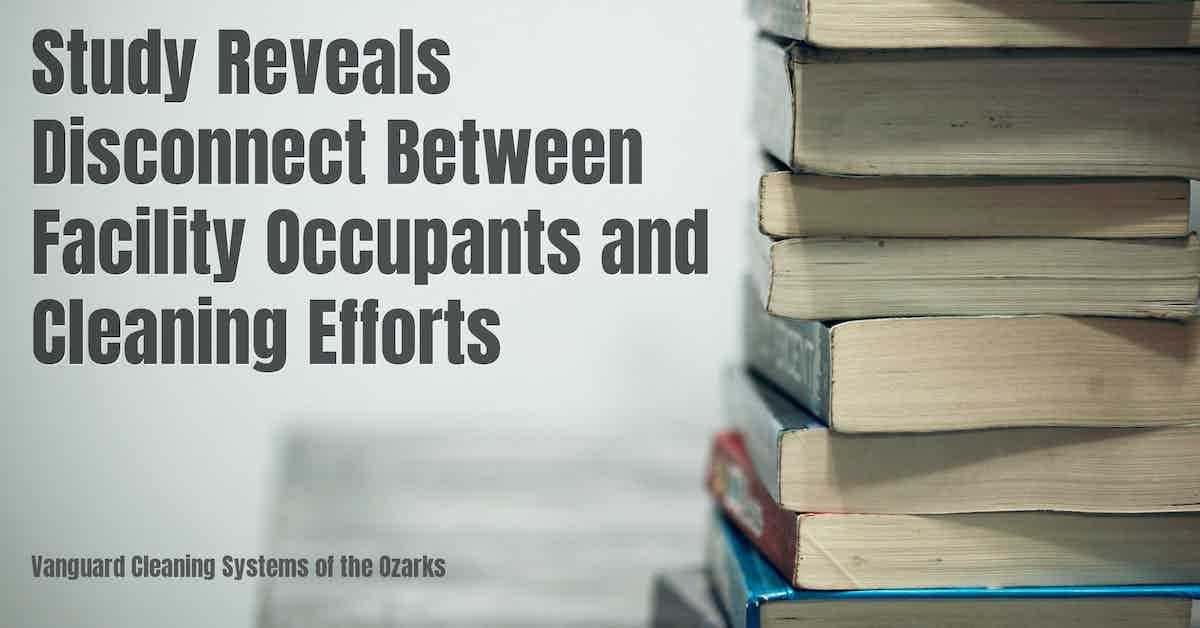Nearly three years after the start of the COVID-19 pandemic, many people are still concerned for their safety in public places due largely to their lack of faith in the capability of cleaning protocols and service providers to protect them from germs and bacteria.

Trust Among Top Consumer Challenges Facing the Cleaning Industry
According to the latest CloroxPro Clean Index survey results, one of the victims of the COVID-19 pandemic was consumer trust in the safety of public spaces.
In a 2022 research study conducted by CloroxPro that surveyed more than 550 cleaning professionals and nearly 1,200 consumers, 80 percent of professional cleaners (pros) cited feeling more pressure to clean and disinfect public spaces, and yet, less than half (48 percent) of consumers have confidence in the industry’s ability to protect the public from germs.
Report Highlights Disconnect Between Professional Cleaners and Consumers of Public Spaces
Among the survey's highlights was an apparent disconnect between spaces considered clean by consumers vs. custodial teams and a sustainable path for rebuilding public trust and moving forward.
Disconnect Between Consumers and Custodial Services
A momentous event on the scale of COVID will inevitably highlight flaws in various methods and processes.
The fallout from the struggles to contain and halt the spread of SARS-CoV-2 brought to light the flaws in the presumed efficacy of facility hygiene and safety programs, specifically their ability to protect occupants from infection.
That failure did not go unrecognized by consumers or the U.S. workforce, resulting in a massive shift in demand for cleaner, safer buildings.
Per Space Coast Daily;
Although workplace hygiene wasn’t a key concern for most pre-2020, 66% of U.S. workers now consider workplace cleaning practices “extremely important,” while almost 90% say they’re “very” or “somewhat important."
More than ever before, employees are highlighting the importance of visible and effective workplace cleaning protocols for maintaining mental and physical health and wellness.
In fact, nearly 40% of survey participants even say poor cleaning in their place of work may even trigger them to look for a new job elsewhere.
66% Of U.S. Employees Want Better Cleaning Protocols In The Workplace
As we can see from the previously referenced survey results, consumers are not getting the desired outcomes.
This may well be due to a disconnect between what occupants and custodial teams consider clean.
According to the results of one section of the CloroxPro survey, when asked to list various facilities in order of cleanliness:
- 84% of custodial workers who responded felt medical facilities and hospitals were very clean compared to between 69% and 73% of consumers.
- Conversely, 16% of consumer respondents said they thought public restrooms were very clean compared to a paltry 10% of responding custodial workers.
- All-in-all, custodial workers tended to feel that various public facilities were cleaner than their consumer counterparts.
Clear communication between the two parties appears to be missing from the equation, which can be difficult to achieve if public trust has been lost.
A path forward requires finding common ground.
In this case, the common ground appears to be sustainable cleaning.
Rebuilding Consumer Trust Through Sustainable Cleaning
One lesson many walked away from the pandemic with was that we as a species have not performed as well as we might have as stewards of the environment.
According to the 2022 Clean Index, rebuilding consumer trust in the safety of public spaces will likely require reimagining how those facilities are cared for, from the ground up, with a sustainable base -- and it's an increasingly popular concept for both consumers and custodial workers.
- 1 in 3 consumer respondents wants to see eco-conscious cleaners be used in ALL public spaces.
- 60% of consumers and cleaning professionals are interested in eco-conscious products.
- Restaurants and schools are the #1 and #2 places where consumers and professional cleaners want to see green cleaners used.
- 45% of cleaning professionals agree that using eco-conscious cleaners helps them meet their facility’s sustainability goals.
Source:
Takeaway
The pandemic generated a rift between consumer confidence and custodial worker perceptions of facility hygiene.
In addition to the obvious communication disconnect between the two groups, additional barriers standing in the way of bringing facility cleanliness up to consumer expectations include:
- Staffing shortages.
- Increased supply costs, and;
- Service provider burnout.
While adopting environmentally-preferable business and cleaning practices may help bridge the gap in consumer trust, it doesn't address staffing shortages and increasing overhead.
Outsourcing is a proven method for onboarding skilled service providers equipped with the latest training, processes, and technologies for a fraction of the price of maintaining a comparable service in-house.
Contact us today and discover why Vanguard Cleaning Systems® is the Standard of Clean® for businesses throughout Northwest Arkansas, Missouri, and Oklahoma.
In Oklahoma, dial 918-960-4450
In Arkansas, dial 479-717-2410
In Missouri, dial 417-812-9777

